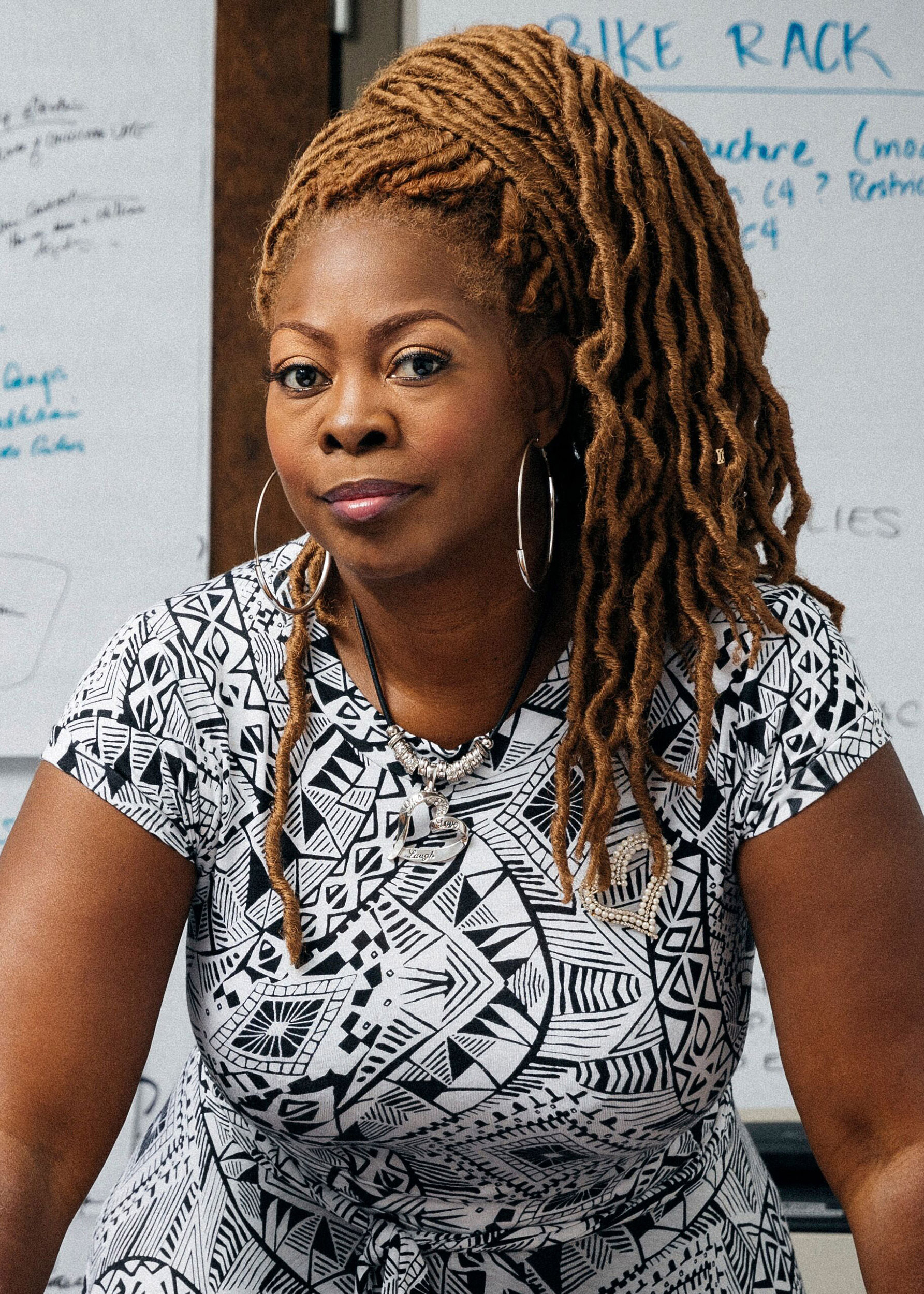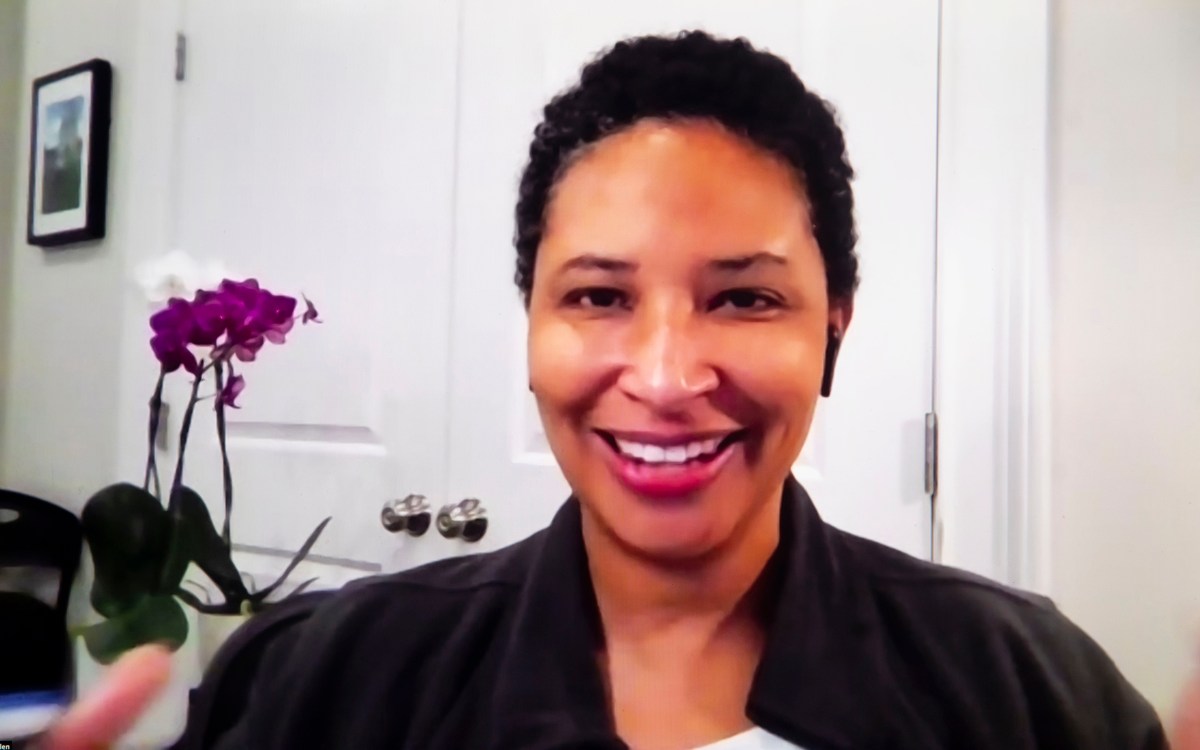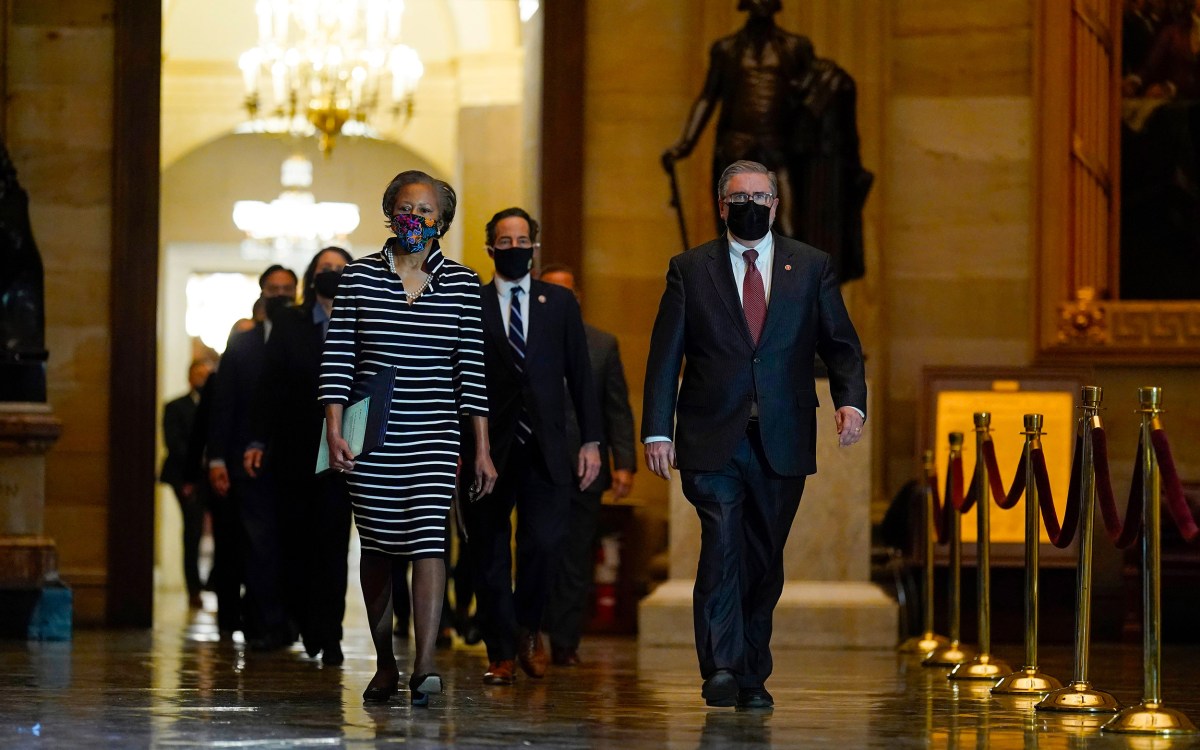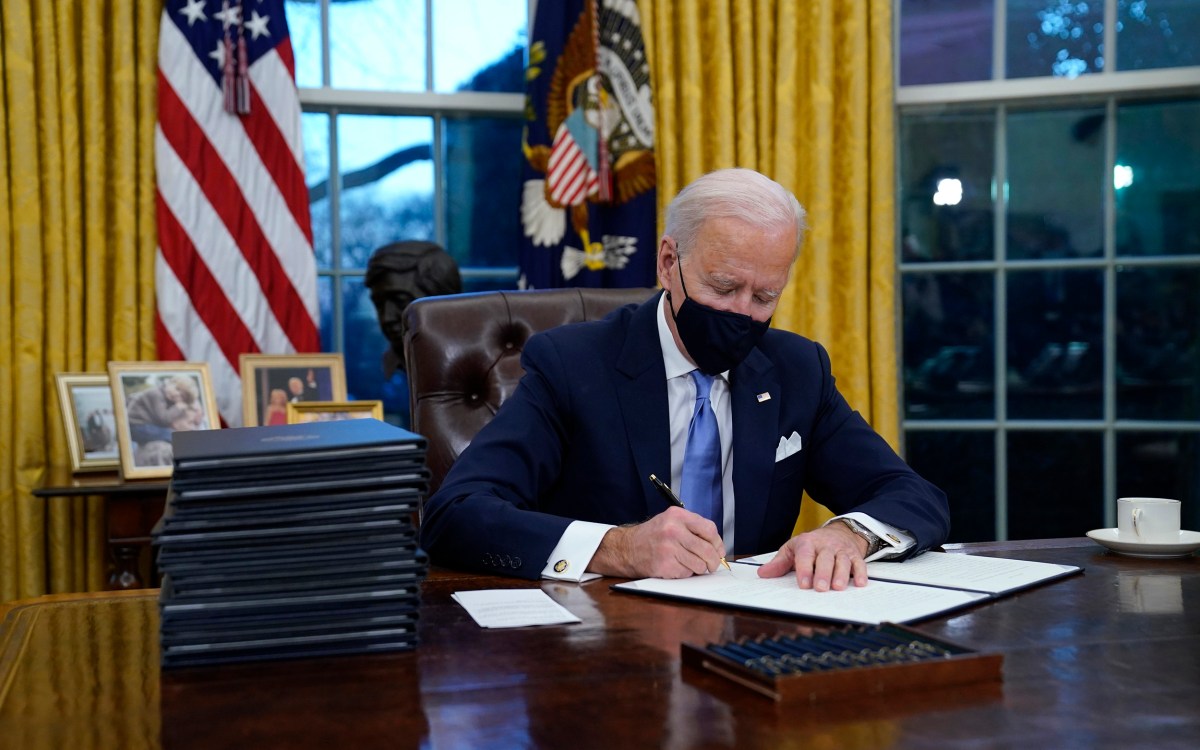Organizing, but not compartmentalizing
LaTosha Brown puts her whole being into increasing voter turnout

Courtesy of LaTosha Brown
Almost 30 years into her career as an organizer, philanthropist, scholar, and political leader, LaTosha Brown knows how to recognize a moment. Brown, a founder of the Black Voters Matter Fund and the Southern Black Girls and Women’s Consortium, saw the 2020 election and Jan. 6 insurrection on the U.S. Capitol as part of a larger paradigm shift in economic, political, and social reality in the U.S. Black Voters Matter was instrumental in increasing voter turnout across the country and particularly in Georgia, where two Democrats beat Republican incumbents to take control of the U.S. Senate.
Brown is a Hauser Leader at the Center for Public Leadership and an American Democracy Fellow at Harvard’s Charles Warren Center for Studies in American History, which, with the Women and Public Policy Program, are hosting a post-election conversation on Thursday at which Brown will speak on those changes. The talk will be moderated by Khalil Gibran Muhammad, professor of history, race and public policy at Harvard Kennedy School and the Suzanne Young Murray Professor at the Radcliffe Institute for Advanced Study.
Brown spoke to the Gazette about her experience building political power in the South, the value of culture in organizing strategy, and her hopes for the future of American democracy.
Q&A
LaTosha Brown
GAZETTE: What are some of the themes you will discuss in your talk, reflecting on the 2020 election cycle and the successes of your organizing work to empower voters?
BROWN: This is a critical moment for people to really understand that the election isn’t the endpoint. In some ways, it’s the beginning point for a new kind of political era. It’s important for us to be very reflective around what happened in 2020 so that we can actually draw on the lessons that can be learned in terms of what worked and what didn’t work. It’s also important to understand the fragility of democracy and our individual and institutional roles in strengthening democracy.
GAZETTE: What have you been reflecting on since the 2020 election and the inauguration of President Biden?
BROWN: At some point, I felt every human emotion you can feel. What I know for sure is: organizing works, and that organized power was realized power. And I’m saying that because this is work that I’ve been doing for 27 years. I don’t even know how many campaigns I worked on. I’ve done everything from being the girl who was responsible for picking up the food boxes for the workers on Election Day to being a candidate to being the person brought into the room with the president to ask my opinion. There are some constant beliefs that I had, and one was this question of: within a system that is inherently racist, and is designed for the majority to maintain power, can democracy be a vehicle for my community to advance and impact the political landscape? I knew it to be the case in some ways, but it’s also one of those fears that you just keep testing.
GAZETTE: What does democracy look like to you?
BROWN: I think a significant amount of white people in this country see democracy as a system that exists and will self-correct, [but] Black folks see democracy as a mechanism of protecting our communities and being able to create space, to have influence and agency over that which governs us, and who governs us. We attach to the value of democracy not just this ideology [and] this particular system that justifies American exceptionalism. [That] foundation is rooted in white supremacy. At best, its democracy has been aspirational, but it’s not been achieved until every single citizen in this country has the ability to operate in that agency.
GAZETTE: What do you think should come out of this election cycle in terms of our understanding of these issues?
“This is a critical moment for people to really understand that the election isn’t the endpoint. In some ways, it’s the beginning point for a new kind of political era.”
BROWN: We have to reckon with what created this [situation] if we don’t want this again. If we just pick back up and do the same thing, it’s going to ultimately lead to this again. There’s been an exposure of the fragility of democracy, and we can’t unsee that. We can’t act like it doesn’t exist. It is far bigger than Trump or the Trump administration. Cracks in the foundation of democracy in this country have been exposed and revealed. We’ve got to have a reckoning of how we got to this place and we also have to really fit in this question around, like Dr. King asked, “Where do we go from here?”
Some of the shifts are already here. We will never go back to an America where it is acceptable for white men to control all the resources. That’s over. What I see is that there is another political reality that we are in. Now, we might create the same exact thing. But the truth of the matter is what has existed does not exist anymore. The unexpected consequence of Trump is that he was an activator for a movement to converge together in ways that have not converged before.
GAZETTE: You love to sing, and you incorporate music into your lectures and community work. What role can the arts play in organizing and activism?
BROWN: Culture is an amazing organizing tool. Music is the best combination of heart, head, and spirits. I use and integrate music in all of my work, including my work at Harvard, because I do think it’s such a powerful strategy for being able to communicate and to be in a posture of listening and receiving. For me, it’s been a tool for healing, for self-expression, and for affirmation. I always say culture will eat strategy for breakfast.
As a woman from the Deep South, culture has been the mechanism in which our organizing has survived. Culture is the container in which I express my life force. Stripping the culture out of policy is stripping humanity out of policy. I think stripping culture out of anything has all kinds of implications. Culture has a way of affirming our differences and our offerings, our gifts. In recent years, I’m happy to say that I no longer compartmentalize my art and my scholarship, and my organizing and my strategy. I’m all of that. I’m a Black futurist, I am a cultural artist, I am an activist, I am an institution builder, I am a philanthropist, I’m a writer, I’m a scholar. I can be all of those things and they’re not in conflict with each other. It is them working in balance and harmony toward a goal.
GAZETTE: What advice do you have for young people who want to start organizing?
BROWN: I want students to recognize that you don’t have to compartmentalize yourself. You can bring your whole being. When you bring your whole being to the table, it increases your offering. That has been the most effective [tool] for me. The absolute best strategy for learning how to be an organizer is on-the-ground training. Through my fellowships and working with students, I think the best sweet spot is actually being able to understand the theory of the world but having the practical on-the-ground practice — there’s no way around it.
The other thing is I would say is: know what time it is. People know it’s a remarkable time but they don’t really realize [that] while they’re in it. I am convinced that we’re in a defining moment. Everything is being reordered. To be a young person, it’s such an amazing opportunity. I think the third part is recognizing that young people have to spend more time radically reimagining these systems, or they will recreate the very system that they’re protesting.








